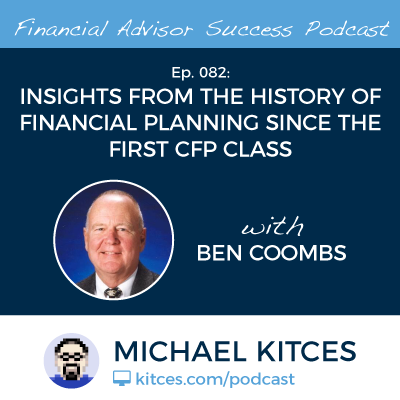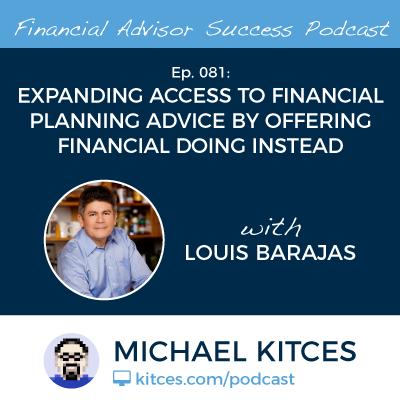Enjoy the current installment of "weekend reading for financial planners" – this week's edition kicks off with a look at the recent Focus Financial IPO, which did in fact go off as planned this week, at a lower price than the rumored peak, but far higher than first anticipated when the IPO was announced, with trading that began at $33/share and closed at $37.55 after the company's first day... which at a multiple of nearly 18X EBITDA, is both a tremendous validation of what markets in the aggregate still see as the promise of the independent RIA model, and will likely fuel a fresh wave of advisory firm roll-up aggregation and M&A.
Also in the news this week is a discussion of how CFP Board is beginning to gear up its compliance enforcement capabilities more than a year in advance of its new fiduciary Standards of Conduct that will take effect in October of 2019, and the questions that still linger after the FPA not only terminated its affiliation agreement with a challenged New York chapter but chose not to replace the chapter with a new independent nonprofit entity (as exists for its more-than-80 other chapters) and instead decided to roll the FPA of Metro New York into the national FPA organization, and raising questions about whether the approach may be a template for national attempting to centralize more of its chapter system in the coming years.
From there, we have several articles on investment themes, from a paper in the Financial Analysts Journal suggesting that Bill Sharpe's famous "Arithmetic of Active Management" (suggesting that the average active manager return will and must underperform the market in the aggregate, net of fees) may not be valid in practice due to the existence of IPOs and share repurchases along with additions and deletions from public market indices (which creates opportunities for active managers to still add net value at the margins), to a look from Research Affiliates at when and whether investment manager selection is really worth the effort (at least compared to simply trying to help clients better manage their own behavior), and a candid look from Morningstar at how its own new Morningstar Analyst Ratings have performed after their first 5 years (finding that Gold ratings do predict risk-adjusted outperformance, and Negative-rated funds underperform, but Silver, Bronze, and Neutral funds are ending up in a murky middle).
We also have a series of articles on client communication, including some good icebreaker questions on how to get clients or prospects to start talking about themselves, 10 "tactless" things that advisors often have to tell clients to help them face reality, and what to consider in the unfortunate situation you actually need to communicate to a client that it's time to end the relationship (i.e., to "fire" the client).
We wrap up with three interesting articles, all around the theme of how increased longevity, paired with increased connectivity, are changing the ways we work and the ways we take breaks from work: the first explores the rising interest, especially amongst Millennials, in taking sabbaticals (and even 1-2 year stints off from work) as an alternative to just working continuously for 40-50+ years (given increased longevity) and then taking the vacations all at the end; the second looks at how the conventional view is that you have flexibility to "goof off" and pursue your passions while you're young, but in reality, we often don't really know what we enjoy and want to pursue when we're young, and that perhaps a better formula is to just focus on working hard in the early years and aim to pursue your passions in your 40s and 50s instead (when your life is more stable and you better know what you actually would want to do); and the last makes an interesting case that, in a 24/7 ever-connected world, perhaps it's a good idea to deliberately live a "24/6" lifestyle, where we take one "digital sabbath" per week to completely unplug and focus on ourselves, our health, and our relationships... both because doing so seems to improve our happiness, and because the alternative has a greater risk of leading to burnout, anyway!
Enjoy the "light" reading!




